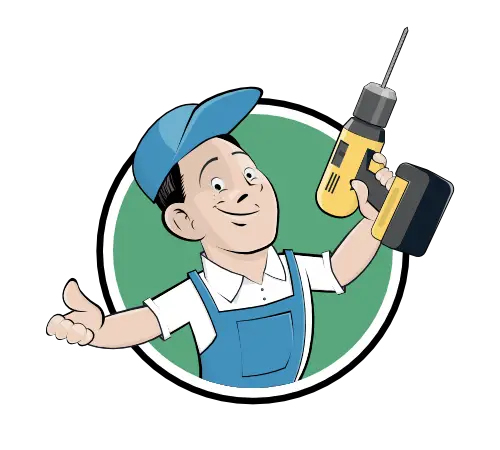Is your regular drill struggling with tough surfaces? Has your current SDS drill become less effective?

SDS drills, equipped with SDS bits and a hammer drill function, can effortlessly tackle challenging materials. However, navigating the market to find the right SDS drill can be a daunting task.
I understand the struggle to find the perfect drill. Having been in the same situation, I conducted extensive research and testing to narrow down some top recommendations for you.
Understanding SDS Drills:
SDS drills are power tools compatible with SDS bits, featuring a distinctive hammer drill function. Unlike regular drill bits, SDS bits have built-in grooves on the shank that lock into SDS-compatible chucks without requiring tightening. This design allows SDS bits to move in a piston motion, remaining secure in the chuck.
Reasons to Invest in an SDS Drill:
Generally used for heavy construction work, SDS drills excel in masonry, brickwork, concrete drilling, granite cutting, tile removal, and more. They are particularly effective for anchoring holes into concrete walls.
Considerations When Buying an SDS Drill:
When shopping for an SDS drill, various features and specifications come into play. To simplify your decision-making process, I’ll highlight crucial aspects for each recommended drill, enabling you to choose the best fit for your project.
Top SDS Drills:
1. Dewalt DCH133M1
Best Feature: Battery Powered, Lightweight
Specs:
- 18 Volts
- 3 Modes: Hammer Drilling, Rotary, or Hammer.
- Battery Powered
- 4AH Battery
- Brushless
- SDS Plus Bits Only
- Weight: 2.3 kg
- Impact: 2.6 joules
- 0 – 5500 BPM
The Dewalt DCH133M1 is a powerhouse for masonry work, featuring two handles for enhanced control and stability. Its surprising battery-powered performance, coupled with its comfortable design, makes it a favorite among professional contractors.
2. Makita DHR242Z
Notable Feature: Dust Filter System
Specs:
- 18 Volts
- 3 Modes: Hammer Drilling, Rotary, or Hammer.
- Cordless
- Weight: 3.3 kg
- Impact: 2 joules
- Speed: 1200 Max RPM
- Brushless
- 0 – 4,700 BPM
The Makita DHR242Z, an upgraded version of the DHR202RTJ, stands out with its powerful yet compact design. Equipped with a dust extraction system and torque limiter, it provides stability and versatility for various applications.
3. Bosch Professional Rotary Hammer GBH 2-26 F
Notable Feature: High Performance, Corded Hammer Drill
Specs:
- 230V
- 3 Modes: Hammer Drilling, Rotary, or Hammer.
- Corded
- Weight: 2.9 kg
- Impact: 2.7 joules
- Speed: 900 Max RPM
- 0 – 4,000 BPM
The GBH 2-26F offers reliability with its corded design, making it suitable for various heavy-duty applications. With features like a keyless chuck, rotation control, and dust extraction compatibility, it balances performance and affordability.
4. Einhell Herocco Brushless SDS Plus Hammer Drill 4513900
Best Feature: Compact, Four Functions
Specs:
- Brushless
- SDS-Plus Tool Chuck
- Battery Powered (Cordless)
- 18 Volts
- Sound Level 103 dB
- Weight 2.12kg
- Impact Strength: 2.2J
- 0 – 5,500 BPM
The Einhell Herocco 4513900 stands out with its compact design and one-handed operation. Despite its size, it delivers a powerful punch, offering four operating modes for increased versatility.
5. Makita HR2630
Notable Feature: Budget-Friendly, 3 Modes
Specs:
- Impact energy 2.4J
- Variable Speed
- Corded
- 3 Modes
- One-touch Sliding SDS chuck
- 240 Volts
- 1200 RPM
- 2.8 Kg
- 4600 IPM
- 800 Watts
- 0 – 4600 BPM
For a budget-friendly option, the Makita HR2630 impresses with its three modes, variable speed trigger, and reliable performance. It handles masonry tasks effectively, making it an excellent choice for cost-conscious DIY enthusiasts.

SDS Drill Buyer’s Guide:
BPM on Hammer Drills:
BPM, or Beats Per Minute (IPM), indicates the number of impacts a bit delivers in a minute. While the impact range may not vary significantly, the speed at which impacts are delivered provides ample force for breaking hard surfaces like concrete.
Corded vs. Cordless SDS Drills:
Corded SDS drills offer reliability for time-consuming projects, while cordless drills provide mobility for quick tasks. Consider the nature of your projects to determine the most suitable option.
Are SDS Drills and Hammer Drills The Same?
While both use the hammer mechanism, SDS drills, and hammer drills differ in chuck design. SDS drills use an SDS chuck compatible with SDS bits, whereas most hammer drills accommodate regular drill bits.
Rotary Hammer Drills vs. SDS Hammer Drills:
Rotary hammer drills are more efficient at creating holes, offering multiple modes. SDS hammer drills are limited to one hammer mode, making them suitable for chiseling and breaking surfaces.
Can I Use an SDS Drill with a Normal Drill Bit?
SDS drills cannot use standard drill bits due to incompatibility with the SDS chuck. SDS chuck adapters are available for using normal drill bits, but only in rotary mode.
Difference Between SDS and SDS Plus:
There are four SDS bit standards, with SDS and SDS Plus being interchangeable. SDS Plus adds four splines on the shank for enhanced security. Ensure compatibility with your drill’s chuck diameter.
This comprehensive guide aims to demystify the world of SDS drills, empowering you to make an informed decision based on your specific needs and project requirements. Happy drilling!
- Drill Battery Maintenance: Essential Tips for Cordless Drill Battery Care - February 5, 2024
- Troubleshooting Drill Issues - February 5, 2024
- Quick Drilling Techniques - February 2, 2024










